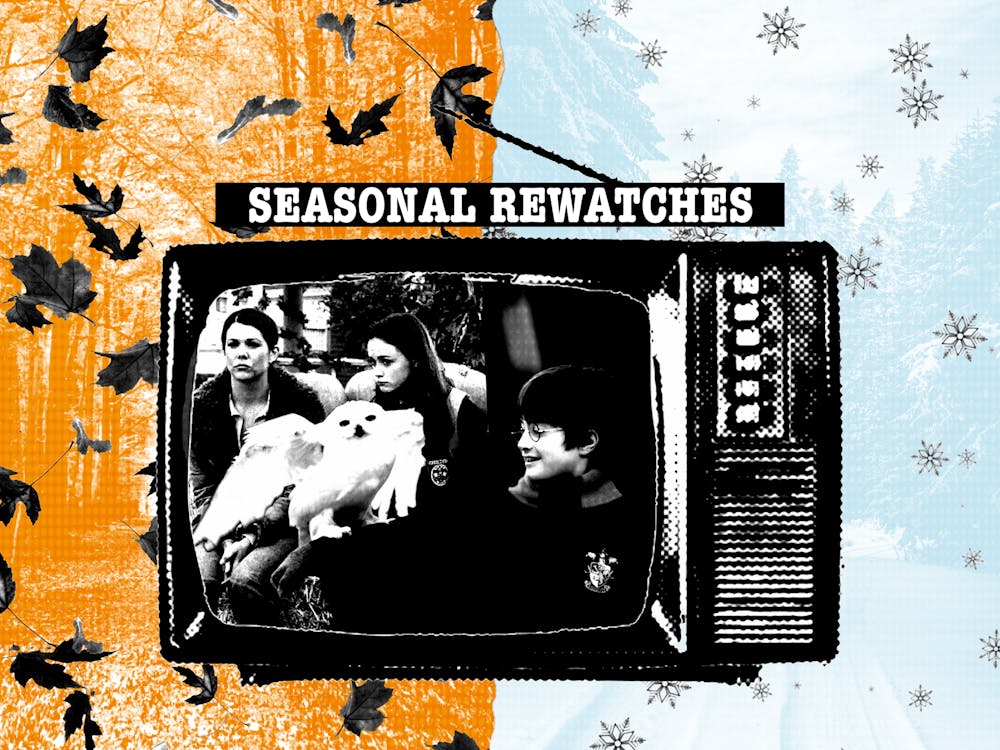If you tuned into the Emmys last night to escape the political hellscape currently dominating social media and the news, tough luck. The most talked-about moment at the 69th Primetime Emmy Awards wasn't Donald Glover's or "The Handmaid's Tale's" historical wins but Sean Spicer, who made a surprise appearance during host Stephen Colbert's monologue.
The former press secretary scooted onstage behind a podium similar to the one Melissa McCarthy used to parody him on "Saturday Night Live," and cracked a joke about the award show's crowd size. He later told The Hollywood Reporter that he thought the Emmys stunt "was kinda funny." Most viewers and news outlets seem to feel differently; CNN headlines the next day accused Hollywood of "enabling" Spicer and said his performance "wasn't funny at all." The Washington Post called it "yucky," and The Atlantic has deemed it indicative of "Hollywood's Strange Politics."
While some celebrities embraced Spicey (or, in James Corden's case, kissed him), many took to social media to express their dissent; Jenny Slate, for instance, tweeted that she was "Truly so grossed out by A GROUP of people ever even considering the idea of real life Spicer at the Emmys" and urged people to "Wake up." In an Instagram post, Jason Isaacs lamented spotting the "poisonous purveyor of lies" at Netflix's afterparty.
But despite the stir (and inevitable meme generator), Spicer was only present for about one minute of the three-hour show. The rest was filled with feminist victories, "Saturday Night Live" wins and Trump jokes.
"SNL" took home the most trophies (nine), but Hulu's "The Handmaid's Tale" (which sparked a string of themed protests against the Trump administration's healthcare policies this summer), won Outstanding Drama Series. The breakthrough series and HBO's "Big Little Lies" each earned eight awards -- most notably for acting by Nicole Kidman ("Big Little Lies"), Ann Dowd and Elisabeth Moss ("The Handmaid's Tale.")
Despite being tied with "SNL" for the most nominations, at 22, HBO's "Westworld" walked away with nothing. So did Netflix's "Stranger Things," which is returning for a much-anticipated second season next month, and, perhaps most disappointing, "Feud: Bette and Joan." Ryan Murphy's FX series received mixed to positive reviews, and the network is currently entangled in a lawsuit with 101-year-old Olivia de Havilland over Catherine Zeta-Jones' unauthorized depiction of her on screen. But Susan Sarandon and Jessica Lange acted their asses off as Bette Davis and Joan Crawford, respectively, and it's unfortunate that the same feminine TV magic that "Handmaid's Tale" and "Big Little Lies" seemed to revel in didn't reach the anthology series.
"Veep," unsurprisingly, won its third consecutive Outstanding Comedy Series, and star Julia Louis-Dreyfus won her sixth award for playing Selina Meyer (also unsurprisingly, and well-deserved.) Kate McKinnon and Alec Baldwin took home trophies for their work on "SNL," and John Lithgow predictably triumphed for his stirring portrayal of Winston Churchill in "The Crown."
Emmys history was also made yesterday, on numerous occasions. Donald Glover became the first black director to win for directing a comedy ("Atlanta"), Lena Waithe is now the first black woman to win for comedy writing ("Masters of None"), Riz Ahmed the first man of Asian descent to win for acting ("The Night Of") and Sterling K. Brown the first black man to win for lead acting since 1998 ("This is Us").
Louis-Dreyfus' win (her eighth total) tied her with Cloris Leachman for the most acting Emmys won, ever, Reed Morano was the first female to win for directing in 22 years and Hulu was crowned as the first streaming service to house an Outstanding Drama Series winner.
Noticeably lacking was HBO's "Game of Thrones." But, as Colbert reminded the nominees, "If you do win, don't forget to thank everyone who helped you get up here. Mainly 'Game of Thrones' for not being eligible this year."
Check out the full list of winners (and red carpet looks) here.




